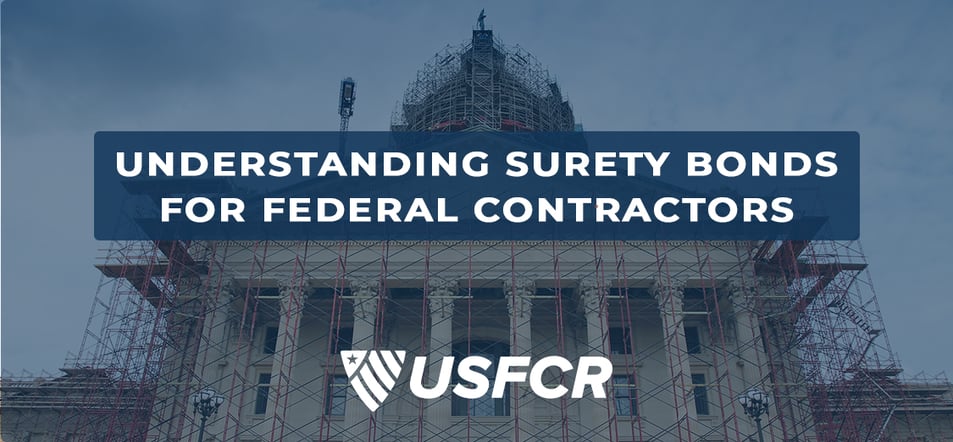Winning federal contracts often comes with a catch: surety bonds. These legal guarantees prove you can deliver on your promises. If you don't, the government is protected. If you're serious about federal work, understanding surety bonds is not optional. It is essential if you want bigger contracts, stronger credibility, and fewer roadblocks.
Surety Bond Basics: What Every Federal Contractor Should Know
A surety bond is a three-party agreement between the contractor (called the principal), the federal agency (the obligee), and a guarantor (the surety). It acts like a financial safety net for the government. If a contractor fails to meet their contract obligations, the surety steps in to cover the loss or complete the work.
The Miller Act and Federal Requirements
The Miller Act requires surety bonds on federal construction, supply, and service contracts over $150,000. It protects public funds and ensures that taxpayers are not left holding the bag if a contractor defaults. For projects over $25,000, performance and payment bonds are also usually required.
Exploring Types of Surety Bonds
Bid Bond: Guarantees the contractor will honor their bid and obtain required bonds if awarded the project. It ensures only serious, financially capable contractors participate in bidding.
Performance Bond: Guarantees project completion according to the contract terms. If a contractor fails to deliver, the surety will either finance the project to completion or hire a new contractor to finish the job.
Payment Bond: This bond protects subcontractors, laborers, and suppliers by ensuring they get paid even if the contractor defaults. It prevents liens and disruptions on federal projects.
Comparison of Surety Bond Types
| Bond Type | Purpose | When It’s Required |
|---|---|---|
| Bid Bond | Guarantees contractor will honor bid terms | During the bidding process |
| Performance Bond | Guarantees project completion | After contract award, over $25,000 |
| Payment Bond | Guarantees payment to subcontractors and vendors | After contract award, over $25,000 |
When Your Project Needs a Surety Bond
Surety bonds are generally required on federal construction projects, especially when public property or larger dollar values are involved. Review each solicitation carefully to know the specific bonding requirements before bidding.
How to Get a Surety Bond in 5 Steps
Getting a surety bond does not have to be complicated. Here’s what the process usually looks like:
-
Choose a surety company with federal contracting experience
-
Organize your paperwork including financial statements, project history, and business operations
-
Apply for prequalification to assess your bonding capacity
-
Review the bond terms carefully to understand your obligations
-
Submit the bond proof to the government agency or contracting officer
Choosing a Surety Company
Select a company with a strong reputation and solid financial ratings. Expect a thorough review of your financial health, your past project performance, and your business operations. Good preparation can speed up approvals and secure better bond terms.
The Contractor’s Advantage: Why Surety Bonds Matter
Surety bonds are more than just legal requirements. They show contracting officers that your business is serious, reliable, and capable. Being bonded can help you win contracts, access better financing, and build trust with larger federal agencies.
Frequently Asked Questions About Surety Bonds
Do all federal contracts require surety bonds?
Not all. The Miller Act covers construction and certain service contracts over $150,000. Always read the solicitation to confirm.
How much does a surety bond cost?
Most surety bonds cost between 1 and 3 percent of the total contract amount. Costs depend on your business’s financials and history.
What happens if I can't get bonded?
Without bonding, you will likely be disqualified from bidding on many federal opportunities, especially in construction.
Need help securing a surety bond for your next federal contract? USFCR can help you get bonded quickly so you can move forward with confidence. To speak with a Registration and Contracting Specialist, Call (866) 216-5343.
Top Articles
The 17 Most Common Types of Government Contracts Explained
Writing a Winning Capabilities Statement in 2025





